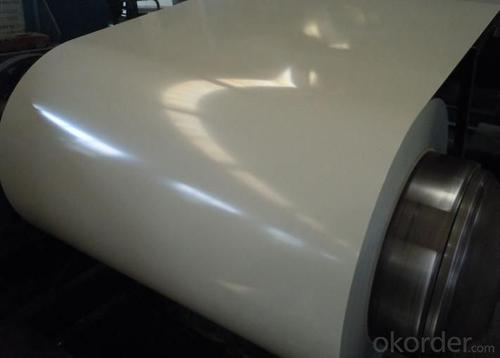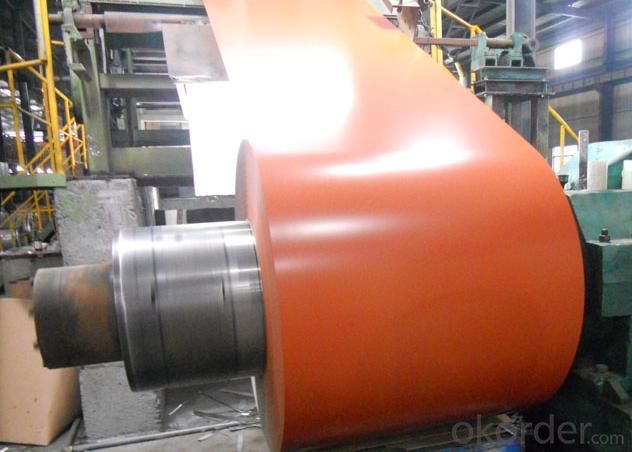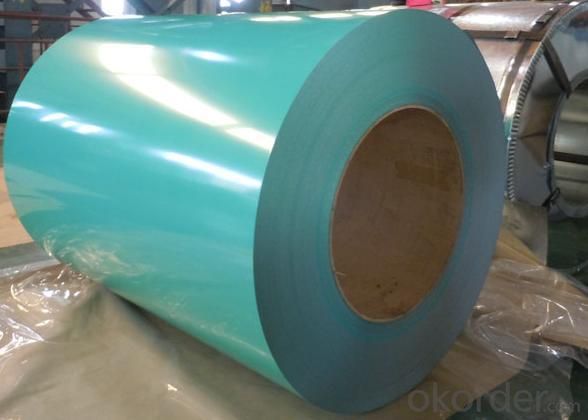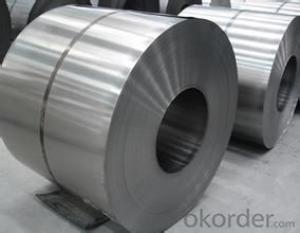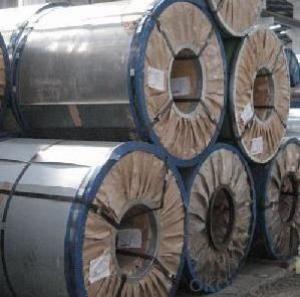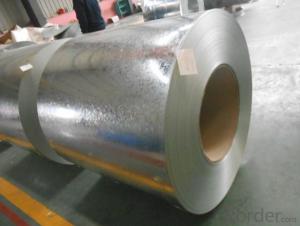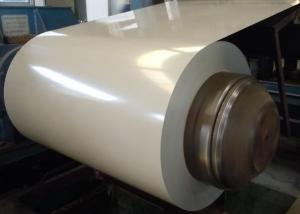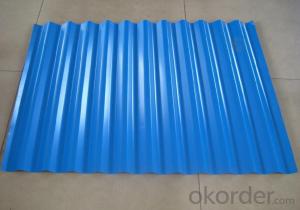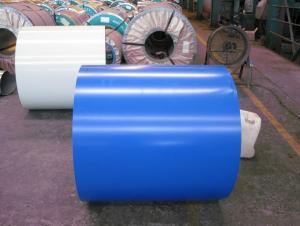Best Price For Prepainted Aluzinc Steel Coil-ASTM A755M
- Loading Port:
- China Main Port
- Payment Terms:
- T/T or L/C
- Min Order Qty:
- 50mt m.t.
- Supply Capability:
- 100,000 mt/year m.t./month
OKorder Service Pledge
OKorder Financial Service
You Might Also Like
General Information Of Prepainted Aluzinc Steel - ASTM A755M
With Aluzinc steel as base metal, after pretreatment (degrease and chemical treatment) and liquid dope with several layers of color, then after firing and cooling, finally the plate steel is called pre-painted aluzinc steel. Pre-painted aluzinc steel is good capable of decoration, molding, corrosion resistance. It generally displays superior workability, durability and weather resistance.
|
Thickness 0.23-1.2mm (BMT) |
|
Zinc Coating 50-150g/m2 |
|
Color According to RAL color fan |
|
Internal Diameter 508mm or 610mm |
|
Coil Weight 4-8MT |
|
Quality Commercial and structural quality |
|
Paint Polyester paint for topside, epoxy for reverse |
|
Standard JIS G 3322, ASTM A755M, EN 10169 |
|
Base Steel Grade SGCC,SGCD,DX51D+Z,DX52D+Z;S200GD,S220GD, S280GD,S350GD,CS,FS,SS |
Chemical Composition Of Prepainted Aluzinc Steel - ASTM A755M
|
C |
Si |
Mn |
P |
S |
|
0.04-0.06% |
0.01-0.03% |
0.18-0.22% |
0.014-0.016% |
0.006%-0.009% |
Technical Data Of Prepainted Aluzinc Steel - ASTM A755M
|
Yield Strength |
(Mpa) 280-320 |
|
Tensile Strength |
(Mpa) 340-390 |
|
Elongation |
20%-30% |
|
Reverse Impact |
9J |
|
T-bending |
≥2T |
|
Pencil Hardness |
≥2H |
|
Duration Of Salt Spray Test |
500 H |
|
Bending At 180 Degree |
No crack, purling and fraction |
Application Of Prepainted Aluzinc Steel - ASTM A755M
It can be widely used in transportation, light industry, civil usage and farming. It is also the perfect building material in construction for making steel roofing, corrugate sheet, sandwich panel for wall or roofing, facade wall, shutters and home appliance.
Packaging & Delivery Of Prepainted Aluzinc Steel - ASTM A755M
Anti-damp paper inside full wrapped with plastic film, iron sheet outside on wooden pallet in 20 feet container with 25mt.
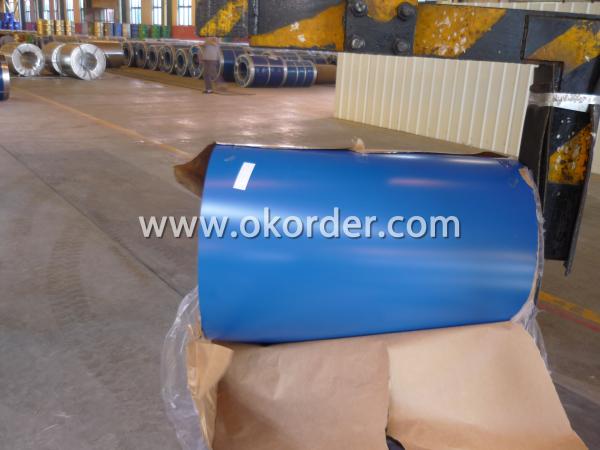
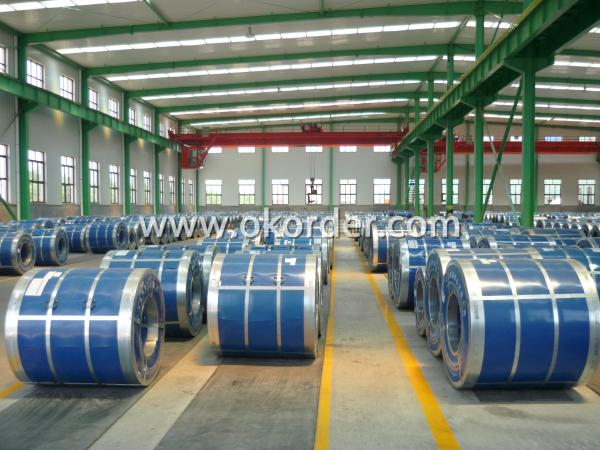
- Q: I'm currently in an Estimating and Bidding class. I have to estimate two divisions for a multi-million dollar project. The project that I chose is around 6 million dollars and involves constructing a new gas/lighting building. I chose to estimate steel, and my question is, around how much out of the 6 million goes toward just the steel estimate? If it helps, this building is has two floors and is roughly about 100x70 feet. The building not wood construction, but rather steel and brick. How much of that 6 million would go into the steel? I'm not looking for anything exact, just roughly.
- That is a little tough to answer given the details. I will try to answer it as best I can. You can send me a message if you need further help and I can get some more details from you. If it is a 6 million dollar project, that is about $428/sf - (6 million divided by 14,000 sf). $428 is a little bit higher end then say, just a Walmart which is a block and steel box. Assuming you have a concrete slab on the first floor, metal deck on the second floor, with steel beams and open web joists framing, steel columns and steel roof framing with a metal deck roof.... you could be approx 10-15% of the total 6 million. Now, this would include the structural steel, not light gauge steel framing for walls. It sounds like you are looking for structural steel, not metal stud framing. Hopefully this helps, I can check back to this thread later to see if you've had to add any more details.
- Q: What are the different methods of shearing steel coils?
- There exist various approaches to shearing steel coils, each with its own unique pros and cons. Some of the most prevalent methods include: 1. Guillotine Shearing: This technique involves the use of a guillotine-like machine that vertically moves a blade to slice through the steel coil. Guillotine shearing provides high efficiency and accuracy, making it suitable for large-scale industrial production. However, it can lead to deformation or burrs on the cut edges. 2. Rotary Shearing: In rotary shearing, a set of rotating blades is employed to cut through the steel coil. This method enables continuous cutting, making it ideal for high-speed production lines. It ensures a clean and precise cut, but necessitates regular maintenance and blade sharpening. 3. Slitting: Slitting entails passing the steel coil through circular blades that create multiple parallel cuts. This method is commonly used to produce narrower strips from wider coils. It offers great precision and the ability to generate multiple strips simultaneously. However, slitting may result in edge burrs or camber on the strips. 4. Laser Cutting: Laser cutting utilizes a high-powered laser beam to melt or vaporize the steel coil along a predetermined path. This method offers exceptional precision and can cut intricate shapes or patterns. It is commonly employed for specialized applications where accuracy is crucial, although it can be relatively costly. 5. Waterjet Cutting: Waterjet cutting employs a high-pressure stream of water mixed with abrasive particles to cut through the steel coil. This method is versatile and can handle various materials and thicknesses. It is especially useful for cutting heat-sensitive materials or for applications requiring minimal distortion. 6. Plasma Cutting: Plasma cutting involves ionizing a gas to create a plasma arc that melts and blows away the steel coil. This method is fast and efficient, making it suitable for cutting thick steel coils. However, it may produce a wider heat-affected zone compared to other methods. 7. Electrical Discharge Machining (EDM): EDM employs electrical discharges to erode the steel coil and achieve the desired shape. This method is commonly used for intricate or delicate cutting tasks that demand high precision. It is particularly effective for hard materials. Each method of shearing steel coils possesses its own set of advantages and limitations, and the choice depends on factors such as the required precision, speed, material thickness, and the desired end-product.
- Q: Ok, I have motorcycle classes and im afraid that I wont feel the gear shifter when shifting. So I want to make the boot softer from the toes where the steel is at so i can feel the gear shift with my toes. When i walk and bump into something by accident with my boots I dont feel anything I almost dont notice it. So I think i will be a problem since I wont be able to feel anything.
- No chance
- Q: How are steel coils protected from chemical damage?
- Steel coils are typically protected from chemical damage through the application of a protective coating or by storing them in a controlled environment to prevent exposure to corrosive substances.
- Q: Several reading methods of steel tape measure
- Precise steel tape factory and after a period of time must go through the verification and indicate the verification of temperature, tension and feet. Feet marked on the length of its nominal length, and the difference between the actual length is called length correction delta l ruler by different tension will make feet long. To avoid this change requires the use of steel tape according to the scale mark force of steel tape. At different temperature the foot will change with the temperature so it is necessary to use t as variable function to represent the feet long, this is the ruler length equation, its general form:
- Q: I am a complete idiot when it comes to anything musical, so please forgive me if this is a stupid question. I bought my son his first guitar, acoustic and didnt realize until after I purchased it that it has steel strings. Can I have the strings changed from steel to nylon???
- Haha, You're too cute for me. Did you buy Alex the guitar? Just wait until your boys become the next Jonas Brothers :)
- Q: Is it faster to smith steel or mithril in Rinescape assuming I'm going to mine everything myself?Mining level: 76Smithing level: 55
- steel, it will take you way to long to mine mithril ore, and all the coal. also if you make steel plate bodies they actually sell becuase people use it to make steel titian pouches
- Q: Can steel coils be customized?
- Yes, steel coils can be customized to meet specific size, shape, and material requirements of various industries. Customization can include altering the dimensions, thickness, or even the coating of the steel coils to suit specific applications.
- Q: What are the different types of steel coil cutting tools?
- In the market, one can find a variety of steel coil cutting tools. These tools have been specifically designed to efficiently and accurately cut steel coils. Some of the commonly used types of steel coil cutting tools include: 1. Slitting shears: These shears are widely utilized to cut steel coils into narrow strips. Equipped with multiple blades, slitting shears offer clean and precise cuts without causing any damage to the material. They are typically employed in high-volume production and are capable of handling different thicknesses of steel coils. 2. Rotary shears: Another commonly used cutting tool for steel coils is the rotary shear. These shears consist of rotating blades that shear through the material as it passes through them. Rotary shears are perfect for cutting medium to thick steel coils and are known for their high cutting speed and accuracy. 3. Guillotine shears: Guillotine shears are heavy-duty cutting tools that can handle thick steel coils. They operate by exerting a downward force to cut through the material in one clean stroke. Renowned for their power and precision, guillotine shears are suitable for cutting large volumes of steel coils. 4. Laser cutting machines: Advanced cutting tools like laser cutting machines employ a high-powered laser beam to cut through steel coils. These machines offer precise and intricate cuts with minimal heat distortion. Laser cutting machines are ideal for cutting complex shapes and patterns on steel coils. 5. Water jet cutting machines: Water jet cutting machines utilize a high-pressure stream of water mixed with abrasive particles to cut through steel coils. This method provides high accuracy and does not generate heat, making it suitable for cutting heat-sensitive materials. Water jet cutting machines can cut through various thicknesses of steel coils and produce smooth edges. Each type of steel coil cutting tool has its own advantages and is suitable for different applications. The choice of tool depends on factors such as the thickness of the steel coil, required precision, production volume, and budget.
- Q: How are steel coils used in the appliance industry?
- Steel coils are used in the appliance industry for a variety of purposes such as manufacturing parts, components, and frames for appliances like refrigerators, washing machines, and ovens. The coils are processed and shaped into specific forms to provide strength, durability, and stability to the appliances.
1. Manufacturer Overview
| Location | Zhejiang, China |
| Year Established | 1999 |
| Annual Output Value | US$1 Million - US$2.5 Million |
| Main Markets | Europe; Africa; Mid East; Southeast Asia |
| Company Certifications | ISO9001;ISO14001 |
2. Manufacturer Certificates
| a) Certification Name | |
| Range | |
| Reference | |
| Validity Period |
3. Manufacturer Capability
| a) Trade Capacity | |
| Nearest Port | Shanghai Port |
| Export Percentage | 41% - 50% |
| No.of Employees in Trade Department | 50-80 |
| Language Spoken: | Chinese, English |
| b) Factory Information | |
| Factory Size: | Above 100,000 square meters |
| No. of Production Lines | 5 |
| Contract Manufacturing | OEM Service Offered |
| Product Price Range | Average |
Send your message to us
Best Price For Prepainted Aluzinc Steel Coil-ASTM A755M
- Loading Port:
- China Main Port
- Payment Terms:
- T/T or L/C
- Min Order Qty:
- 50mt m.t.
- Supply Capability:
- 100,000 mt/year m.t./month
OKorder Service Pledge
OKorder Financial Service
Similar products
Hot products
Hot Searches
Related keywords



